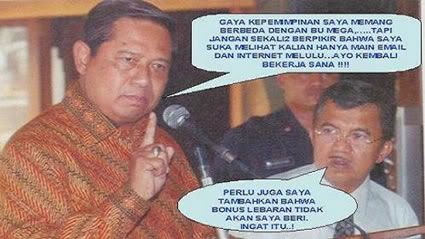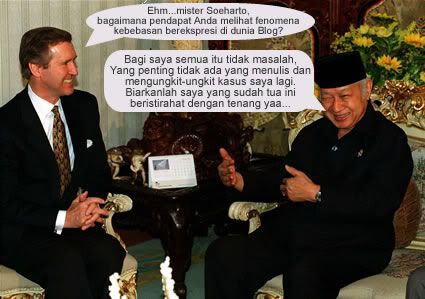As opposed to organic search results (free by nature), the majority of search engines now offer Pay for Performance (PFP) options. Pay for Performance lets you promote your site by paying for SE exposure, rather than by relying on solely organic listings determined by your SEO efforts.
There are three main types of Pay for Performance options:
- Pay-per-click - the best examples are Google AdWords and Yahoo! Search Marketing Solutions (formerly Overture). With pay-per-click (PPC) advertising, advertisers place bids for different search keywords. When users perform searches for these keywords, advertiser short, textual ads are shown together with organic results. If a user clicks on one of these ads, the advertiser is charged the per-click sum agreed to earlier.
- Paid inclusion (or paid submission) is a fee-based inclusion into the database or directory of a search engine. The more prominent paid inclusion programs are Yahoo! Search Submit and Yahoo! Directory Submit.
- Paid sponsorship - with this model, an advertiser pays a flat fee to a search engine. In return, the search engine shows the advertiser’s ads together with search results for pre-selected keywords. ExactSeek, for example, features this pay-for-performance model.
Pay-per-click
PPC advertising is by far the most widespread form of pay-for-performance search marketing. As it’s the most effective way for a search engine to make money, PPC is offered by almost every SE on Earth. However, the two most prominent providers of PPC advertising are Google and Yahoo.
Google AdWords
Google AdWords is the world leader in pay-per-click advertising. Currently it has more than 150,000 advertisers. The ads show up not only with Google search results, but also with Google partners such as AOL search, About.com and thousands of other websites that publish AdWords ads. Google has an interesting ad ranking system. It ranks ads not by the bid (the amount their owners are ready to pay for one click), but by the combination of the bid and the click-through ratio. This way, Google maximizes its revenue stream (since Revenue to Google = Bid x CTR x Views) and gives small advertisers an opportunity to effectively compete with big companies. A small advertiser cannot compete on the cost-per-click basis, but can successfully overcome any big company in terms of the click-through ratio.
AdWords ads can only contain 95 characters: 25 for the headline, then two 35-character-long description lines, and a visible URL field.
AdWords gives advertisers several options to target keywords: broad matching, exact matching, phrase matching, and negative keywords. The matching options define how close the search string entered by a user should be to a keyword selected by an advertiser. If the advertiser has chosen [tennis ball] as their keyword (square brackets mean exact match), their ad will be shown only if a user enters tennis ball into the search box. If the advertiser has chosen “tennis ball” (quotes mean phrase match), the ad shows up if a user searches for red tennis ball or yellow tennis ball or simply tennis ball. Finally, if the advertiser has chosen tennis ball with no brackets or quotes around it (for a broad match), the ad will show up even if a user enters wilson rackets. With negative keywords, advertisers can prevent their ad from showing up if a user enters this keyword. For example, a retailer would usually add -free, -replica to the keywords list to avoid targeting “free stuff” hunters.
One recent development with AdWords was the release of AdWords API (application program interface) that will allow third-party developers to create applications that will work directly with AdWords accounts facilitating and automating many bid and ad management tasks.
You can learn more and sign up for Google AdWords at http://adwords.google.com.
Yahoo
Yahoo! Search Marketing Solutions http://searchmarketing.yahoo.com (formerly Overture) is the second top player after Google in the field of PPC advertising. Overture (originally called GoTo) was the first company to offer PPC advertising and was later acquired by Yahoo. Yahoo ranks ad listings exclusively based on the bid amount; furthermore, if you get a top-3 listing with Yahoo, your ad will be prominently placed with MSN, Altavista, CNN, and other search and news portals.
Yahoo Search Marketing offers Sponsored Search and Content Match. Sponsored search ads show up among search results in Yahoo and its partners; Content Match ads appear on the content partners of Yahoo (this is not search, but conventional websites that are capitalizing on their content by showing third-party ads from Yahoo or Google)
Other PPC Engines
A PPC model is an excellent source of income for any search engine. Therefore, almost every search engine offers PPC advertising opportunities. Among the more prominent PPC Engines are:
- LookSmart
- MIVA
- ePilot
- Mamma, etc.
Paid inclusion
With paid inclusion and submission, site owners pay search engines to get their sites reviewed and included either into the general search index, or into a directory. Yahoo! is the main player in the market of paid inclusion. It’s paid for inclusion programs are Search Submit, and Directory Submit.
Yahoo! Search Submit
Search Submit adds your site into Yahoo’s index and ensures that it will be re-crawled every 48 hours (as opposed to around two weeks for sites that were automatically added by crawler to the index). Search Submit costs include a $49 initial fee and cost-per-click fees (starting from $0.15) for each click you receive.
Yahoo! Directory Submit
With Directory Submit, there is a $299 fee for your site to be reviewed and (if accepted) added to Yahoo! Directory. After this, you will be subject to an annual recurring fee of $299. For more information about Yahoo! Pay for Performance products, please visit http://searchmarketing.yahoo.com.
Paid sponsorship
The category of Pay for Performance search mainly includes flat fee search advertising. ExactSeek (http://exactseek.com) is a nice example of such a model.
ExactSeek
With ExactSeek, you purchase a so-called “Featured Listing” (actually, your ad) on a selected keyword. Your listing then shows next to the search results for the selected keyword. You do not pay for every click - you pay for your presence in search results. There is no ad ranking system, if there are several listings for one keyword, they will show in random order.
 Tapi tak usahlah kita ikut-ikutan mencari video porno. Cuman nambah dosa, padahal bekal amal kita untuk akhirat nanti masih kurang banyak, bukan? Kalau mau nonton videonya, yang tidak porno berikut ini sudah menarik. (Dan kita tak perlu main hakim sendiri. Lebih baik kita beri kesempatan kepada sistem hukum untuk menyelesaikan kasus ini. Kalau suami Manohara bersalah, biarlah dia dihukum. Andai ibu Manoharalah yang menipu, biarlah kelak dia mendapat ganjarannya.)
Tapi tak usahlah kita ikut-ikutan mencari video porno. Cuman nambah dosa, padahal bekal amal kita untuk akhirat nanti masih kurang banyak, bukan? Kalau mau nonton videonya, yang tidak porno berikut ini sudah menarik. (Dan kita tak perlu main hakim sendiri. Lebih baik kita beri kesempatan kepada sistem hukum untuk menyelesaikan kasus ini. Kalau suami Manohara bersalah, biarlah dia dihukum. Andai ibu Manoharalah yang menipu, biarlah kelak dia mendapat ganjarannya.)






